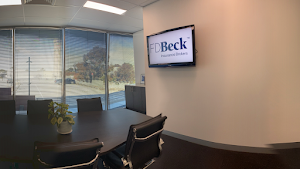Commercial Property Insurance in Victoria, Australia
Commercial property insurance in Australia is a type of insurance coverage designed to protect commercial property owners from financial losses resulting from damage or loss of their buildings, contents, and other assets used for business purposes. It provides coverage for risks that can occur to commercial properties, such as office buildings, retail stores, warehouses, factories, and other types of commercial premises.
What Is Commercial Property Insurance?
Commercial property insurance typically covers a range of perils, including fire, theft, vandalism, storm damage, water damage, natural disasters (e.g., floods, earthquakes), and other specified events. The coverage can extend to various aspects of the property, including the building structure itself, fixtures and fittings, signage, inventory, equipment, furniture, and other business assets.
In addition to property damage coverage, commercial property insurance may also provide coverage for business interruption. This coverage helps compensate for lost income and ongoing expenses if your business operations are temporarily disrupted or halted due to a covered event, such as a fire or other property damage.
Liability coverage is another important component of commercial property insurance. It can protect you in case someone is injured or their property is damaged while on your premises, and you are found legally responsible for the incident. This coverage can help cover legal fees, medical expenses, and any settlement or judgment costs associated with such claims.
Commercial property insurance policies can often be tailored to meet the specific needs of different businesses. The coverage limits, deductibles, and optional endorsements can be adjusted based on the size of the property, its location, the nature of the business, and other relevant factors.
It’s important for business owners to carefully review their policy documents and understand the coverage provided, any exclusions or limitations, and the claims process. Working with an insurance broker can help ensure that you obtain the right coverage for your commercial property and business operations.
Do I Need Commercial Property Insurance?
Commercial property insurance is essential for several reasons in Australia:
Commercial property insurance provides coverage for damage or loss to your commercial property, including the building structure, fixtures, fittings, and contents. It safeguards your investment in the property and ensures that you can repair or replace damaged assets without bearing the full financial burden yourself.
If a covered event, such as a fire, flood, or storm, damages your commercial property, it may force your business operations to pause temporarily or indefinitely. Commercial property insurance can include business interruption coverage, which helps compensate for lost income, ongoing expenses, and relocation costs during the restoration period. This coverage enables you to maintain financial stability and resume operations as quickly as possible.
Commercial property insurance often includes liability coverage, which protects you if someone is injured or their property is damaged while on your premises, and you are held legally responsible for the incident. Liability claims can lead to substantial legal costs, medical expenses, and potential settlements or judgments. Having insurance coverage helps protect your business assets and mitigate the financial impact of such claims.
Commercial properties are vulnerable to theft, burglary, and vandalism. Commercial property insurance provides coverage for losses resulting from theft of business assets, damage caused by burglaries, or acts of vandalism. This coverage helps you recover financially and secure your property against potential criminal activities.
Australia is prone to natural disasters such as bushfires, storms, floods (by endorsement), and cyclones. These events can cause significant damage to commercial properties. Commercial property insurance offers protection against these risks, ensuring that you are financially prepared to recover and rebuild in the aftermath of a natural disaster.
If you lease a commercial property, your landlord may require you to carry commercial property insurance as a condition of the lease. It is common for landlords to request proof of insurance to protect their interests and ensure that any damage to the property is adequately covered.
Even though commercial property insurance is not legally mandated in Australia, it is highly recommended for business owners. Without insurance, you risk bearing the full financial burden of property damage, liabilities, and business interruptions, which can have severe consequences for your business’s financial stability and continuity. Commercial property insurance provides peace of mind, allowing you to focus on running your business, knowing that you are protected against unforeseen events and potential financial losses.
How Is the Insurance Premium for Commercial Property Insurance Calculated?
The premium for commercial property insurance is calculated based on various factors that help insurers assess the level of risk associated with the property and the business. Here are some key factors that influence the calculation of commercial property insurance premiums:
The value of the commercial property plays a significant role in determining the insurance premium. Insurers consider factors such as the building's construction type, size, age, and replacement cost. Higher property values typically result in higher premiums.
The location of the commercial property is another crucial factor. Insurers assess the risks associated with the area, including the likelihood of natural disasters (e.g., flood, bushfire), crime rates, and proximity to high-risk locations (e.g., industrial sites). Properties in high-risk areas may attract higher premiums.
The type of business conducted on the premises and how it is used affect the premium. Factors such as the industry, occupancy type (e.g., retail, office, industrial), and any hazardous materials or processes involved can impact the risk level and, consequently, the premium.
The security measures in place at the commercial property can influence the premium. Insurers may consider factors such as the presence of security systems (e.g., alarms, surveillance cameras), fire suppression systems, and access controls. Robust security measures can potentially lower the premium by reducing the risk of theft, vandalism, or damage.
The claims history of the property owner or the business can affect the premium. If there is a track record of frequent or significant claims, insurers may consider it a higher risk and adjust the premium accordingly.
The coverage limits, which determine the maximum amount the insurer will pay in the event of a claim, and the deductible, which is the amount the policyholder must pay out of pocket before insurance coverage applies, can affect the premium. Higher coverage limits and lower deductibles generally result in higher premiums.
Additional Coverages & Endorsements
The inclusion of additional coverages or endorsements beyond the standard policy can impact the premium. Optional coverages such as business interruption, or loss of rent will increase the premium but provide added protection.
Insurers assess these factors and use actuarial data and underwriting guidelines to determine the premium for commercial property insurance. It’s important to note that insurance companies may have their own proprietary formulas and risk assessment processes, so premiums can vary between insurers. It’s advisable to work with an insurance broker who can provide personalised quotes and help you understand the factors influencing your specific premium.
Can I Customise My Commercial Property Insurance Policy?
Yes, you can often customize your commercial property insurance policy to meet your specific needs. Commercial property insurance policies are typically flexible and allow you to tailor the coverage based on your business requirements.
Here are some ways you can customise your policy:
Commercial property insurance policies offer different coverage types that can be selected based on your needs. You can choose coverage for the building structure, contents, fixtures and fittings, equipment, inventory, and other specific assets relevant to your business.
You can customise the coverage limits to determine the maximum amount the insurer will pay in the event of a covered loss. It’s important to evaluate the value of your property and assets to ensure that the coverage limits adequately protect your investment.
The excess / deductible is the amount you are responsible for paying out of pocket before the insurance coverage kicks in. By choosing a higher excess / deductible, you can often lower the premium. It’s essential to assess your financial capacity to handle potential excess / deductibles in the event of a claim.
Commercial property insurance policies may offer optional coverages or endorsements that can be added to enhance your coverage. These may include business interruption insurance, loss of rent coverage, machinery breakdown coverage, or coverage for specific risks relevant to your business. Adding these optional coverages can provide additional protection tailored to your needs, but they will generally increase the premium.
When customizing your commercial property insurance policy, it’s advisable to work with an insurance broker who specialises in commercial insurance. They can help you assess your risks, understand the available options, and guide you in tailoring a policy that best fits your business needs while ensuring adequate coverage.
Are There Any Exclusions or Limitations?
Yes, commercial property insurance policies include exclusions or limitations that specify certain risks, circumstances, or conditions that are not covered by the policy. These exclusions and limitations are important to understand as they define the scope of coverage provided by the policy. Here are some common exclusions or limitations that may be found in commercial property insurance policies:
Policies may exclude coverage for specific perils or events, such as acts of war, terrorism, or certain natural disasters. For example, coverage for flood damage may be excluded or subject to specific conditions or separate coverage.
Policies usually do not cover damage caused by normal wear and tear, gradual deterioration, or lack of maintenance. The policy is typically intended to cover sudden and accidental damage rather than ongoing maintenance and upkeep.
Damage caused intentionally or as a result of illegal activities is typically excluded from coverage. If the insured is involved in illegal activities on the property, the insurer may deny coverage for resulting damage.
Commercial property insurance generally covers property at a specified location. If property is in transit or temporarily located elsewhere, coverage may be limited or require additional endorsements or specific transit coverage.
Pollution-related damage, contamination, or environmental hazards may be excluded or subject to separate pollution liability coverage. Specific endorsements or additional policies may be necessary for coverage related to pollution incidents.
If the insured property remains unoccupied for an extended period, typically defined as 30 or 60 consecutive days, coverage may be limited or excluded. Insurers may require additional safeguards or endorsements for unoccupied properties.
Policies may have specific exclusions based on the nature of the business or property. For example, certain high-risk activities, hazardous materials, or specific types of property may be excluded from coverage unless explicitly endorsed.
It’s crucial to carefully review the policy documents, including the exclusions and limitations section, to fully understand what is covered and what is excluded. It’s advisable to work with an insurance broker who can explain the policy terms and help you assess any specific concerns or requirements you may have.
What Industries Do Commercial Property Insurers Target?
Insurers typically underwrite commercial property insurance for a wide range of industries. While insurers may provide coverage for businesses across various sectors, certain industries may have specific considerations or risk profiles that insurers target. Here are some industries that insurers commonly underwrite commercial property insurance for:
This includes businesses operating in the retail sector, such as shops, supermarkets, department stores, convenience stores, and boutiques.
This includes businesses in the hospitality industry, such as restaurants, cafes, motels, and bed and breakfast establishments.
Insurers often underwrite commercial property insurance for businesses that operate in office spaces, including professional services firms, corporate offices, administrative offices, and co-working spaces.
This includes businesses engaged in manufacturing and production activities across various sectors, such as food and beverage, textiles, electronics, machinery, and automotive.
Insurers provide coverage for businesses involved in warehousing, storage, and distribution operations. This includes companies operating warehouses, logistics providers, wholesalers, and distributors.
Insurers underwrite commercial property insurance for businesses in the health and medical sector, including clinics, medical centers, hospitals, dental practices, and allied health services.
Real Estate & Property Management
This includes businesses involved in property management, real estate agencies, property developers, and commercial property owners.
Insurers target businesses in professional service sectors, such as accounting firms, law firms, consulting firms, advertising agencies, and architectural or engineering firms.
This includes educational institutions such as schools, colleges, universities, training centers, and childcare facilities.
Non-Profit & Community Organizations
Insurers provide coverage for non-profit organizations, community centers, religious institutions, and charities.
It’s important to note that these are broad categories, and within each industry, specific risk factors and considerations may vary. Insurers assess the individual risks associated with each business and industry to determine the appropriate coverage and premiums.
How Can I Make a Claim?
To make a commercial property insurance claim in Australia, follow these general steps:
Contact your insurance provider as soon as possible to inform them about the incident and initiate the claims process. Provide them with relevant details, such as the policy number, date and time of the incident, and a brief description of what happened.
Take photos or videos of the damaged property and any affected contents. This visual evidence can help support your claim and provide documentation of the extent of the damage.
Take necessary steps to prevent further damage to your property. This may include securing the premises, arranging temporary repairs, or contacting emergency services if needed. Document any emergency repairs and keep receipts for related expenses, as they may be reimbursable.
Collect all relevant documents and information to support your claim. This may include the incident report, police reports (if applicable), any relevant invoices or receipts related to repairs or replacements, and any other supporting evidence.
Prepare documentation that establishes proof of ownership or the value of the damaged property. This can include purchase receipts, invoices, appraisals, or inventory records.
Your insurance provider will likely provide you with claim forms to fill out. These forms will require details about the incident, the damaged property, and any other relevant information. Fill out the forms accurately and provide all requested information.
Submit the completed claim forms along with the supporting documentation to your insurance provider. Ensure that you retain copies of all documents submitted for your records.
An insurance claims adjuster may be assigned to assess the damage and determine the coverage and settlement. Cooperate with the adjuster by providing any additional information or documentation they request. They may arrange for inspections or further assessments of the damage.
Once the insurance company has reviewed your claim, they will provide a settlement offer based on the terms and conditions of your policy.
If you and the insurance company reach an agreement on the settlement, the insurer will proceed with the payment. Depending on the terms of your policy, you may receive a lump sum or multiple payments to cover the repairs, replacements, or losses specified in the settlement.
It’s important to note that the claims process may vary slightly depending on your insurance provider and the specific policy terms. It’s recommended to review your policy and contact your insurance provider directly for precise instructions and guidance regarding the claims process for your commercial property insurance.

















